[70 years on] Fan Jinshi: The daughter of Dunhuang
Dec 13, 2019
Editor’s Note: This story is part of a series of articles celebrating the 70th anniversary of the founding of the People’s Republic of China. Each article shines the spotlight on one PKUer who has made remarkable contributions to China’s recent development, highlighting not only the importance of their individual accomplishments, but also the significant impact Peking University has had on China’s development over the past 70 years.
Peking University, Dec. 13, 2019: The oasis in the wilderness, the frescoes in the grottoes, the bright pearl in the lost river. . . For thousands of years, people have been obsessed with the divine temple of Dunhuang, to which some have even devoted their whole lives. After the much-anticipated Shanghai opera The Daughter of Dunhuang premiered, only one name was known to all—Fan Jinshi.
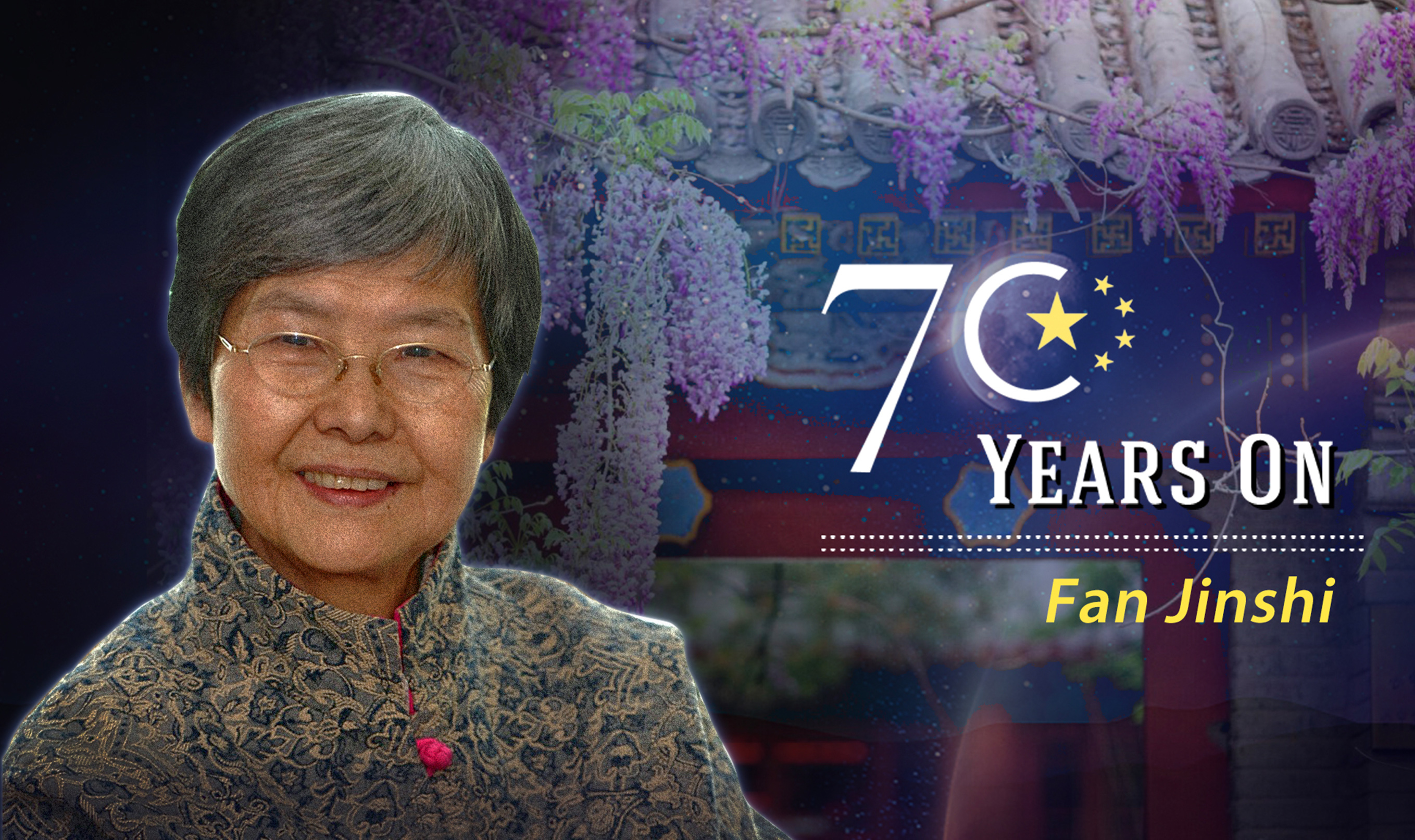 Fan Jinshi
Fan Jinshi
From Peking University to Dunhuang
During Fan’s bachelor’s studies at Peking University, she discovered her passion in the field of archaeology, and it was this passion that led her to Dunhuang. “Nurtured by the education at Peking University, I come to understand how to work for Dunhuang in a better way,” she said. “PKU has influenced my entire life.”
 The Mogao Grottoes in Dunhuang
The Mogao Grottoes in Dunhuang
From 1958 to 1963, Fan studied archaeology in the Department of History at Peking University. Since she completed her studies, there have been a number of teaching reforms and other political movements that have transformed the institution. However, according to Fan, what intrigued her most was the fortunateness for students from different cultural and academic backgrounds to be immersed together to learn and conduct research. What Fan experienced may alternatively described as the progressive and innovative spirit of Peking University. Although the subject of archaeology at Peking University was not formally founded until 1958, scholars had begun to prepare teaching materials using their creative insights, academic connections and years of research. These were circumstances that Fan was a part of and this experience helped shape her academic career in the field of archaeology.
Only through the experiences and exercises of fieldwork could students in the field of archaeology become qualified for further research. As for Fan, she decided to join an intern group heading for the Mogao Grottoes in Dunhuang, and little did she know how big of an impact this decision would be on her academic career. Su Bai, a veteran archeologist and the instructor of Fan’s group at that time, was extremely strict with students. Fan had to repeatedly report to him about her research process, and Su would always challenge her decision-making with serious questions. For example, Fan wrote her thesis beginning with a preface, and Su asked directly, “How on earth can you start your thesis with a preface?” Fan could not understand Su’s behavior until she completed her thesis. In hindsight, Su’s strict requirements helped develop Fan’s academic vitality and shape her professional attitude.
Fan proudly said, “If I have made a little contribution to the grottoes in Dunhuang,” Fan said, “that will be ascribed to my nurture at Peking University and the inculcation from my teachers.” As Fan accepted her award at the ceremony of “Lui Che-Woo Prize”, she said “I have been so influenced by the core spirit and academic atmosphere of my alma mater, Peking University, and that I would never forget to serve my homeland and to continuously undertake the weighty responsibility of the preservation work in Dunhuang.” She accepted the prestigious award and believed that it will encourage her and her colleagues to sustain ceaseless exploration, ascension, and innovation, thus continuing to make significant contributions to the Mogao Grottoes, China, and the rest of the world. Fan’s sincere belief also embodies what she called “the Mogao Spirit”.
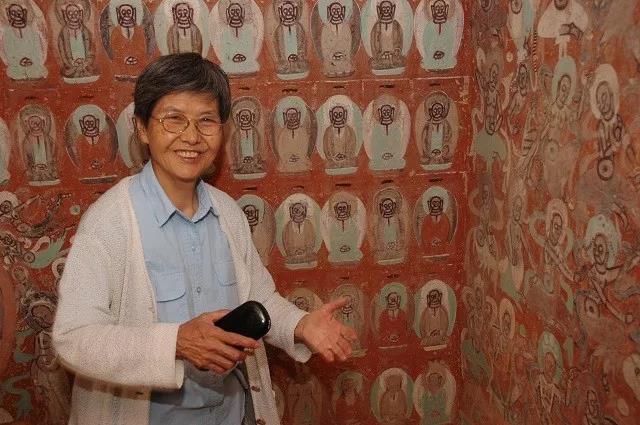 Fan at the Mogao Grottoes
Fan at the Mogao Grottoes
“The Mogao Spirit”
During the interview, Fan said, “On hearing of my assigned mission in Dunhuang, my father wrote a letter to the school leader, saying that he hopes that his daughter’s assignment could be reconsidered. However, after deliberation, I decided to accept the challenge.” Fan explained her reason powerfully and simply, “The need of the country is in our will.” Dunhuang became the emblem that signifies not only “the Mogao Spirit”, but her responsibility to the country as well.
In 2014, Fan explained the significance of “the Mogao Spirit”. It meant to be dedicated and responsible to the desert. Historically, this spirit stemmed from the first and second generation of Mogao scholars. During the time of difficulty, they made efforts to sacrifice themselves to preserve the cultural heritage. During Fan’s internship, she dwelled in a grass-roofed room, had only coarse grain to eat, and a lack of water and electricity. Unfortunately, she fell ill within three months, which ended her fieldwork. As Fan began preparing to leave the site, she thought that she would never come back. However, less than one year later, she returned and continued to preserve the shrine of Dunhuang.
Every year, the environment in Dunhuang is growing vulnerable to natural erosion and human destruction. Fan’s research was focused on the preservation, rescue, and restoration of the Grottoes. During her presidency at Dunhuang Academy, Fan organized the drafting of “Regulations on Preservation of Mogao Grottoes in Dunhuang, Gansu”. The regulations stated that the Mogao Grottoes was divided by preservation and general areas. In the preservation areas, there can be no commercial construction. In the open areas, Fan deployed a system of divisional rotation and travel booking to reduce potential human destruction. These solutions were created by Fan and her preservation team, with a clear goal of protecting the grottoes. Through environmental monitoring and research, a system was established to prevent desertification and to deal with any engineering blocking, chemical control, and biological fixation. In addition, brand-new materials and technologies are utilized to rescue and restore the damaged frescos.
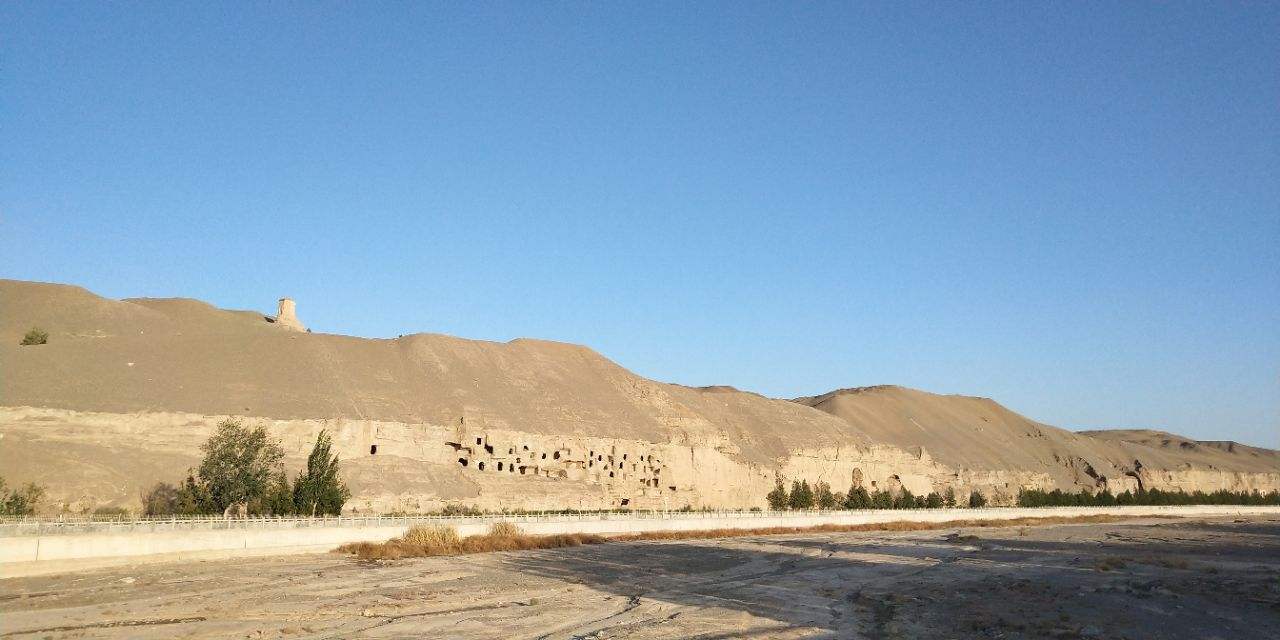 The Mogao Grottoes in Dunhuang
The Mogao Grottoes in Dunhuang
Between Dunhuang and Wuhan
In order to maintain “the Mogao Spirit”, Fan Jinshi has made many sacrifices such as her separation from her husband and children. However, these difficult challenges did not change her opinion. Importantly, Fan is never alone, even in Dunhuang, far from Wuhan where her family is living. Her husband, Peng Jinzhang, continues to wait for her and has been supporting Fan’s decisions.
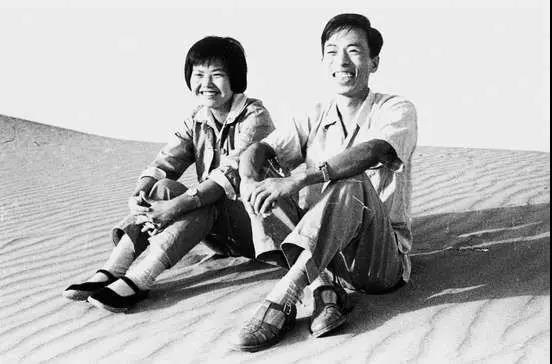 Fan and Peng
Fan and Peng
Fan met Peng for the first time at Peking University. They were classmates. Fan used to call him “Old Peng” because he had grey hair at a very young age. According to Fan’s memories, Peng had a healthy relationship with his classmates. He worked conscientiously and responsibly, and appeared passionate, sincere, and kind-hearted, which impressed Fan. The love that was shared between Fan and Peng was not typical, but rather spiritual. Their most precious moments are their walk around Weiming Lake and a group photo before graduation. After graduation, Fan was assigned to Dunhuang but Peng decided to continue his studies at Wuhan University. At first, they thought the assigned mission in Dunhuang would be manageable, since Fan was expected to return to Wuhan in three or four years. But, the separation lasted for nineteen years.
In the autumn of 1965, Peng visited Dunhuang. It was their first meeting since graduation. Although they had a memorable time together during Peng’s eight-day stay, neither of them could openly discuss their perspective futures. They asked each other questions such as “How could we bare the suffering from the distance and time not spent together? What if one of us becomes ill and needs help? What about children? It was clear that the feeling of pleasure was accompanied with a sense of pain and confusion. As Peng prepared to leave Wuhan, he promised Fan, “I will wait for you”. Upon hearing these words, Fan began to cry and helplessly watched the car drive away.
Eventually the two decided to marry and welcomed two children. It was difficult for Fan and Peng to maintain a healthy family as the children grew because both were preoccupied with their professional careers, in addition to their familial responsibilities. If Peng went away on official business, he had to leave the children in his colleagues’ care, which was not ideal for their development. Initially, the plan was for Fan to return Wuhan by 1976. However, as Fan’s research progressed she became hesitant to go to Wuhan. She had to decide between returning to her family or to continue her work in Dunhuang. In addition, Fan had a mental conflict with Gansu and Wuhan University, which would make it difficult for her to seek a job. Finally, in 1986, Peng decided to move to Dunhuang, Peng said, “If one of us has to change, let it be me. I know Fan is not willing to leave Dunhuang and make a compromise”.
When Fan was asked how she and Peng were able to cope with such adversities, Fan replied “I think it is because we are the people of the old time. We were classmates who would mutually understand. We never used to say ‘I love you’, but Peng knew I liked him, so he would never be harsh on me, and would never give me up.”
Messages to a new generation
Peking University, the place where dreams begin, is also the place where dream are passed on. This year, seven letters written by seven alumni, along with a delicately designed offer letter, have been sent out all over China to congratulate the freshmen and to encourage them to fulfill their beautiful dreams. Fan Jinshi is one of those alumni.
In her letter to the first-year students at Peking University, she addressed the difficult experiences in Duhuang before the implementation of the Reform and Opening-up policy in 1978. Before 1978, electricity and sanitary equipment were in shortage, not to mention the poor transportation system and the lack of daily supplies. Fan confessed that she occasionally considered leaving. However, as time went by, she gradually recognized the values of preserving and restoring the Mogao Grottoes. Fan, was determined to stay and has been there for 56 years. She emphasized the significance of cultural heritage in Dunhuang, in addition to her own responsibility to China. Fan’s next desire is to turn the Mogao Grottoes in Dunhuang into a nationally and internationally recognized cultural site. This is her chosen path, a single cause for life with no regrets.
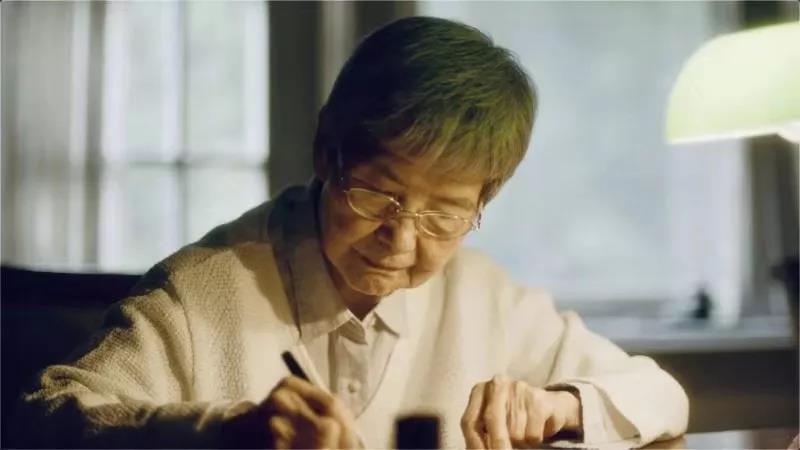 Fan writing a letter to new freshmen at Peking University
Fan writing a letter to new freshmen at Peking University
“Every generation has their own undertaking and I hope during your studies at Peking University, you can keep in mind the inculcation from previous President Cai Yuanpei: Hold fast to the righteous purposes, strengthen the sense of virtues, show respect for teachers, remain grateful all the time, and eventually become a PKUer with a noble mind and an ideal amount of love,” Fan wrote in her letter to newly-admitted Peking University students.
Written by: Zhou Meng
Edited by: Kairun Daikouku
Photo credit to: Dunhuang Academy





